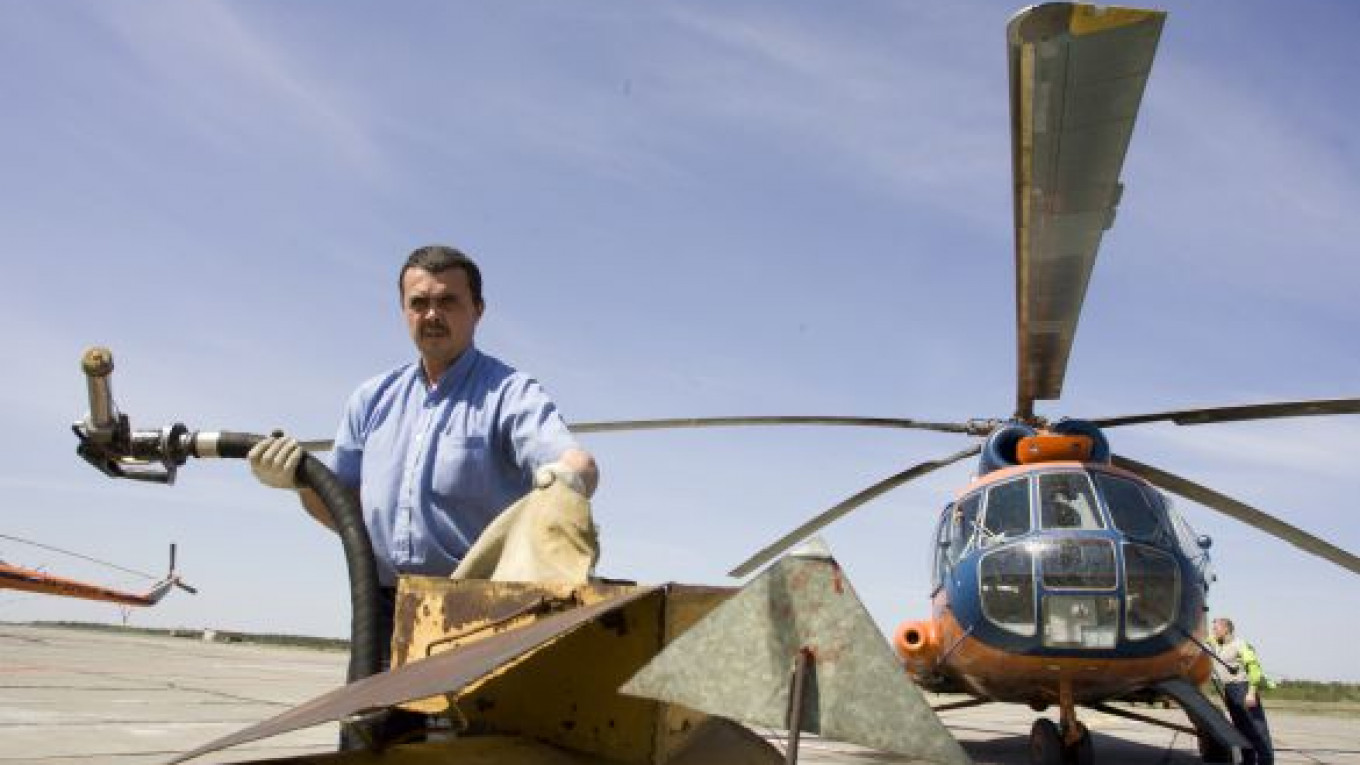Faced with an underdeveloped road and rail network that is expensive to build and maintain, the government is betting on regional aviation to link Russia's far-flung destinations with big cities, once a common practice in the Soviet Union.
Prime Minister Dmitry Medvedev has ordered the government to review by the month's end airlines' demand for aircraft with up to 72 seats passenger capacity in order to determine customs duties on imported models.
The government is considering eliminating duties for planes in this category to make their purchase more attractive for airlines but has not yet made a decision.
Also, the authorities were instructed to come up with possible sources of additional financing for the development of regional aviation by Feb. 18, a notice published on the government site said Wednesday.
"The goal is to increase the mobility of our people by 40 percent in the short term," Medvedev said at a meeting on regional aviation earlier this year, a video of which was published in his blog. "Despite financial difficulties the government's support of regional air transportation is growing every year," he added.
Currently, the government subsidizes regional air service between the Far East and Kaliningrad and Russia's central regions, partly reimburses leasing payments for airplanes, and subsidizes small airports.
This year alone, the federal budget plans to allocate a total of over 12 billion rubles ($367 million) for these needs, the prime minister said.
Although interregional air traffic volumes were growing a mere 3 to 4 percent in recent years, they grew by over 16 percent in the first 9 months of this year, he said.
Growth of passenger volumes has resulted in increased profits for the airlines.
"Aeroflot is successfully integrating its regional airline acquisitions: two out of four regional carriers achieved operating profit 19 months after acquisition," a report by Rye, Man & Gore Securities said.
In November 2011, Aeroflot purchased five state-owned domestic carriers, Vladivostokavia, Sаkhalinskiye aviatrassy (SAT), Rossiya, Orenair. At the time, it also purchased Saratov Airlines, which it sold later that year.
The national carrier's launch of low-cost subsidiary Dobrolet in May next year will tap the huge potential of this market niche in Russia, the report said.
Another big player on the regional air market is UTair and the company also sees good opportunities there.
However, in order to develop aviation that would connect far-flung small cities, it needs a specific type of plane — with 15 to 16 seat capacity — and airports that would be prepared to take them, said Elena Galanova, a spokesman for the airline.
"Also, the service requires the right marketing promotion. People should be once again convinced that flying short distance is better than taking a train or a bus," she added.
One widely discussed problem for the whole aviation sector in Russia is a shortage of qualified pilots.
The Economic Development Ministry earlier proposed to allow Russian airlines to collectively hire up to 200 foreign pilots per year through 2018 to compensate for the lack of pilots at home.
And according to news reports, Aeroflot was prepared to single-handedly consume the quota.
"A shortage of pilots is a myth. The industry has about 400 unemployed domestic pilots, sometimes there are 7 people ready to take one job," said Miroslav Boichuk, president of Russia's Cockpit Personnel Association.
Many of them are experienced pilots, he said, and can be retrained to fly regional jets, including foreign-made planes.
Contact the author at [email protected]
A Message from The Moscow Times:
Dear readers,
We are facing unprecedented challenges. Russia's Prosecutor General's Office has designated The Moscow Times as an "undesirable" organization, criminalizing our work and putting our staff at risk of prosecution. This follows our earlier unjust labeling as a "foreign agent."
These actions are direct attempts to silence independent journalism in Russia. The authorities claim our work "discredits the decisions of the Russian leadership." We see things differently: we strive to provide accurate, unbiased reporting on Russia.
We, the journalists of The Moscow Times, refuse to be silenced. But to continue our work, we need your help.
Your support, no matter how small, makes a world of difference. If you can, please support us monthly starting from just $2. It's quick to set up, and every contribution makes a significant impact.
By supporting The Moscow Times, you're defending open, independent journalism in the face of repression. Thank you for standing with us.
Remind me later.






